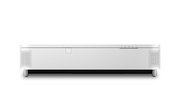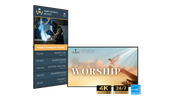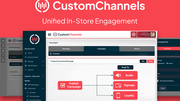Commentary
How LED suppliers can avoid trouble with the FCC
It's official: the Federal Communications Commission is committed to vigorously enforcing its radio frequency equipment rules. This 'vigorous enforcement' includes stepping up prosecution of suspected RF equipment rule violations, as well as substantially increasing fines on suppliers that break those rules.

August 3, 2018 by Ronald Quirk — Attorney, Marashlian & Donahue
It's official: the Federal Communications Commission is committed to vigorously enforcing its radio frequency equipment rules. FCC Commissioner Michael O'Reilly recently stated that this "vigorous enforcement" includes stepping up prosecution of suspected RF equipment rule violations, as well as substantially increasing fines on suppliers that break those rules.
FCC's many enforcement actions targeting LED Suppliers
Unfortunately, LED light suppliers are now in the crosshairs of the FCC's zealous enforcement approach. Since March 20, 2018, the FCC has decided nine enforcement proceedings against LED light suppliers. The FCC-imposed fines are substantial, ranging from $15,000 to $61,000. With the FCC's newly-implemented policy, future fines are almost certain to be even larger.
While the fines are significant, they are often the least of the troubles encountered by LED suppliers that are caught in the FCC’s dragnet. Some of the more serious problems include:
- Harm to the supplier's reputation, as the enforcement actions are done publicly.
- Orders to take offending devices off the market until the issue is resolved.
- Possible revocation of certifications of equipment that violate FCC rules, and banning suppliers from marketing their products in the U.S.
Rule violations that led to these enforcement proceedings
The nine subject cases are similar. After reviewing a complaint against each of the companies, the FCC opened the investigations by sending them a Letter of Inquiry requiring sworn responses to questions about their LED authorization and marketing practices. After receiving replies to the LOIs, the FCC continued the investigations, which revealed that the companies had violated many rules.
The rules the LED suppliers violated include:
- Marketing and advertising LED equipment without FCC authorization applicable to the specific class of devices.
- Failure to retain design drawings and testing records showing compliance with the FCC’s technical specifications.
- Neglecting to label the LED signs in conformity with the FCC's rules.
- User manuals missing the required notification that modifying the LED signs without approval can void the user's authority to operate the equipment.
- Failure to follow the FCC's rules concerning authorization of the LED signs and their component parts.
- No cautionary information provided to the user regarding harmful interference and the conditions under which the LED signs may be operated.
These are just some of the rules that apply to the authorization, marketing, and operation of RF equipment in the U.S. The FCC has a myriad of other applicable rules. Moreover, the compliance requirements increase when RF devices are imported, experimental devices are deployed, component parts are categorized differently (requiring unique authorizations for each part), certain frequencies are chosen, equipment is installed as part of a system, and when RF devices are refurbished.
The FCC's enforcement process
Investigations into RF equipment violations are easily commenced. In addition to complaints filed by interested parties (usually competitors), the FCC can find rule violations on its own by, among other things, viewing suppliers' websites and other advertising, investigating trade shows, and engaging in post-market surveillance of certified devices.
As discussed above, the first communication in an enforcement proceeding is the FCC's sending an LOI to the responsible party. Once received, that party has 30 days to respond to all the FCC's questions. If, on the basis of the response, the FCC determines that a violation has occurred, it issues a public Notice of Apparent Liability for Forfeiture wherein the purported violation and sanctions are spelled out. The party has an opportunity to file a response, which the FCC will evaluate and address in a subsequent order. Responses seldom result in dismissal of the case, but, with a good argument, the sanctions can be mitigated to some extent.
Suppliers sometimes opt to negotiate a consent decree with the FCC to terminate an enforcement proceeding, usually prior to the issuance of an NAL. Consent decrees, which are made public, typically require suppliers to admit liability, pay a fine, implement strict compliance plans, and provide periodic reports to the FCC on the progress of those plans.
Employ best practices to avoid trouble with the FCC
Because the FCC is watching LED suppliers like a hawk, providers are well advised to employ regulatory best practices to ensure FCC compliance and market their products without fear of FCC enforcement. Best practices include:
- Understanding and complying with all pertinent FCC rules.
- Correctly categorizing and equipment and properly testing and authorizing same.
- Vendor contract procedures.
- Advertising and marketing practices.
- Importation and working with foreign components.
- Efficient legal guidance before the FCC Enforcement Bureau & mitigating legal liability.
- Legally expanding markets overseas.
- Privacy protection.
Image via Istock.com.
About Ronald Quirk
Ronald E. Quirk is Head of Marashlian & Donahue's Internet of Things Practice Group. Mr. Quirk's career spans more than 20 years, including a tour at the FCC. Mr. Quirk focuses his practice on a variety of legal and regulatory matters that are of particular importance to digital signage suppliers that are seeking to solidify and expand their markets.
 ChatGPT
ChatGPT Grok
Grok Perplexity
Perplexity Claude
Claude






